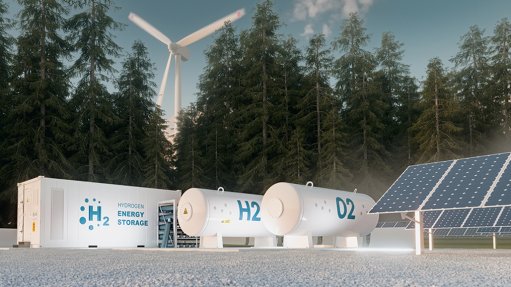
HYDROGEN OUTLOOK National Society of Black Engineers president Mdu Mlaba says a local green hydrogen economy presents new opportunities
Government needs to hasten implementation of policies and execute its investment commitments to enable a local hydrogen economy, says National Society of Black Engineers president Mdu Mlaba.
“This is crucial to unlock the green hydrogen economy and the opportunities it presents.”
Mlaba adds that the hydrogen panel appointed by Trade, Industry and Competition Minister Ebrahim Patel in July last year should identify and communicate the critical steps that South Africa needs to take to avoid missing opportunities in the green hydrogen sphere.
Opportunities have arisen, owing to new technology being introduced for green hydrogen, and the country should act swiftly to capitalise on these opportunities, he outlines.
“The Department of Trade, Industry and Competition (DTIC) needs to engage with offtake countries on behalf of South Africa for the country to get an adequate and quantifiable understanding of the exact export demand for clean hydrogen,” he adds.
Mlaba expects the hydrogen panel who champion the green hydrogen master plan for South Africa to “urgently” deliver and communicate the plan.
He says the panel should, firstly, consider how green hydrogen will be produced, transported and stored efficiently, as South Africa does not have a gas pipeline network.
Solutions for the transportation and storage of green hydrogen should be established.
Mlaba adds that the R270-billion green hydrogen pipeline project, in the Northern Cape, should be accelerated to allow for the Boegoebaai Special Economic Zone to be used as an export hub for green hydrogen and ammonia.
“Green hydrogen energy storage is challenging, and ammonia is a safer, easier, efficient and more energy-dense way of transporting hydrogen using vessels globally. If the Boegoebaai project is successfully delivered, it will then act as a catalyst for South Africa’s entry into the global green hydrogen export market.”
Secondly, the DTIC should follow a strategy of commercialising and funding for clean hydrogen through its hydrogen master plan, says Mlaba.
Localisation should also be considered, to benefit local communities, and the panel should identify the catalytic projects required.
South Africa has a strong industrial background, owing to its history of building infrastructure, such as power stations, oil refineries and railways, which places the country in a unique position to build its green hydrogen economy.
He notes that the country has an abundance of natural resources, such as solar and wind energy, but that the Presidency should mobilise all relevant stakeholders behind one goal.
“Government must set and communicate clear key performance indicators that can be measured and regularly tracked for the country to actualise its green hydrogen vision,” concludes Mlaba.